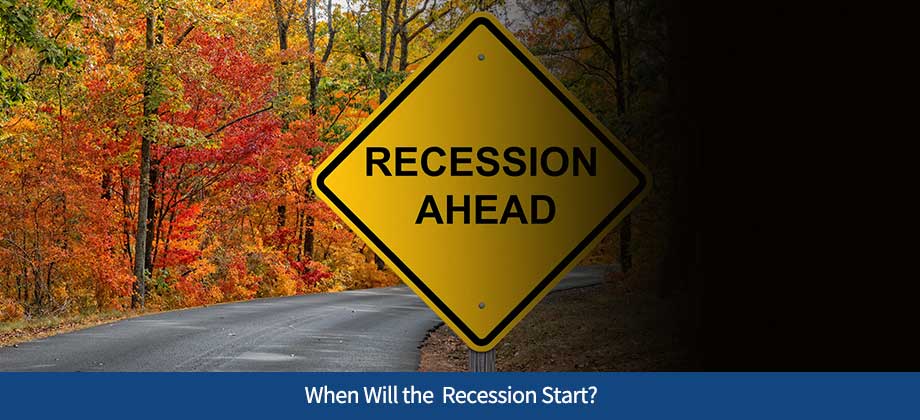When Will the Recession Start?

We’ve been talking about the recession for what seems like ages. We have not, however, been able to truly define when it’s going to happen. But new reporting from various financial experts suggests something both gloomy and promising at once: the promise of a recession, but not until the end of 2023 (possibly even later than that). Let’s dive into what the pros are saying, shall we?
Is it avoidable… or isn’t it?
It’s not likely we’ll be able to avoid a recession the way many once thought possible. Policies that could potentially help deter a recession would only make inflation worse, and that’s not an option for consumers these days. And it would only be kicking the can down the road for an even harsher recession later on. Low inflation, at least in the eyes of the Federal Reserve, is the name of the game. A speech from Federal Reserve chairman Jerome Powell states “History shows that the employment costs of bringing down inflation are likely to increase with delay, as high inflation becomes more entrenched in wage and price setting. The successful Volcker disinflation in the early 1980s followed multiple failed attempts to lower inflation over the previous 15 years. A lengthy period of very restrictive monetary policy was ultimately needed to stem the high inflation and start the process of getting inflation down to the low and stable levels that were the norm until the spring of last year. Our aim is to avoid that outcome by acting with resolve now.” While the latest numbers on inflation (just released on December 13, 2022) do show signs of cooling off, we can’t stop our attempts to slow it even further now. There’s also been reporting from the research firm Ned Davis that there’s a 98 percent chance of a global recession, based on their probability model.
When will it hit?
As reported by the New York Times, “The yield on the U.S. two-year Treasury note, which closely tracks expectations for Fed rate moves, fell sharply on Tuesday, as investors dialed back expectations for further interest rate increases. As the Fed has continued its campaign to increase rates to bring down inflation, the yield on the two-year bond has risen well above the 10-year equivalent, a rare but reliable sign of a recession.”
Since the Federal Reserve is expected to continue tightening its belt by raising interest rates into 2023, Forbes is projecting a recession to hit the U.S. in late 2023 or even early 2024. Stanley Druckenmiller, a billionaire investor, had a similar projection when interviewed in late September 2022 at CNBC’s Delivering Alpha Investor Summit: “I will be stunned if we don’t have recession in ’23. I don’t know the timing but certainly by the end of ’23. I will not be surprised if it’s not larger than the so called average garden variety.”
While a recession may be inevitable, there are steps your business can take to help reduce the impact. Check out our article “Is Your Business Ready for a Recession?” for top tips on making sure your business is prepared.
Reaching your business goals is closer than you think thanks to the industry-leading financial products we offer at ARF Financial. Whether you’re looking for a revolving line of credit, interest-only Flex Pay loan, bridge loan, or more, we’re ready to help fund your success. Visit us today to see for yourself why thousands of small businesses have turned to ARF Financial for all their financing needs.
Your privacy is important to us. ARF Financial will never sell or rent your information to any third party. Click here for more information about our privacy policy.

